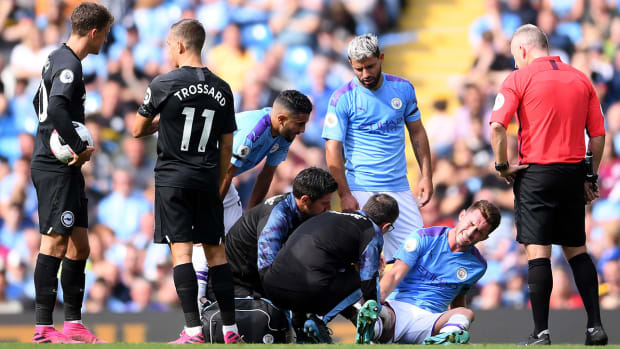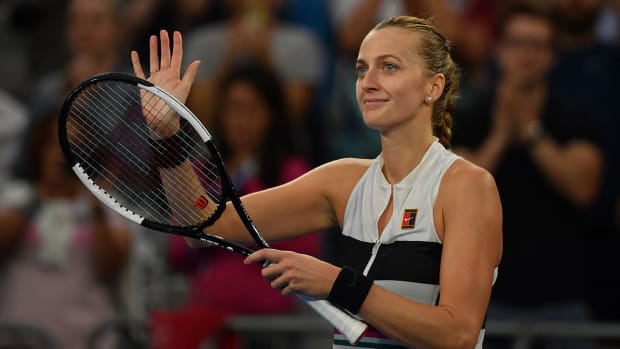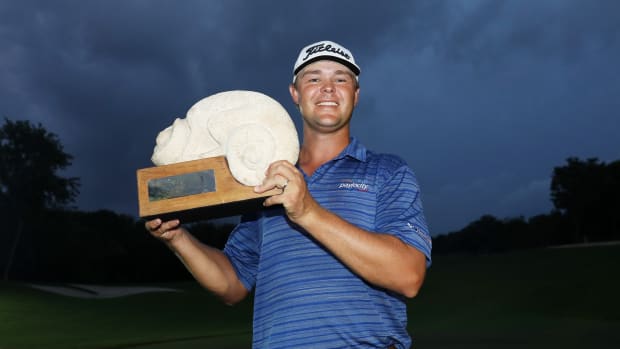IAAF confident Russian race-walking coach will be sanctioned
LONDON (AP) Track and field's world governing body is investigating a Russian coach at the center of a major doping scandal and is confident he will be kicked out of the sport.
IAAF anti-doping manager Thomas Capdevielle said Monday that disciplinary procedures have been opened against Viktor Chegin, who heads the Russian race-walking center in Saransk. More than 20 athletes trained by Chegin - including Olympic champions - have received doping bans or been placed under investigation in recent years.
''The case is currently being investigated and pursued as an anti-doping violation,'' Capdevielle said. ''The numbers talk here, when you have a coach with more than 20 athletes who tested positive or are under investigation.''
Chegin's role falls under various investigations by the IAAF and World Anti-Doping Agency into allegations of organized doping and cover-ups in Russia. Five Russian walkers, including three Olympic champions, were banned for doping last month.
Capdevielle said the International Association of Athletic Federations needs to find evidence that Chegin ''actively administered substances or facilitated the doping.''
''He requires some investigation,'' the IAAF official said in a conference call with reporters. ''But we are confident it will end up in a satisfying conclusion for us with a sanction and that this coach is out of the sport.''
The IAAF could take action against Chegin before the completion of WADA's wider investigation, which is expected to last until the end of the year.
''Our rules allow us to suspend him provisionally if we think that it's taking too long or that he should immediately stop being a trainer and holding his position,'' Capdevielle said.
The move against Chegin comes as the IAAF and anti-doping bodies step up efforts to target coaches who assist in doping. In December, Jon Drummond - coach of sprinter Tyson Gay - received an eight-year ban from the U.S. Anti-Doping Agency after arbitrators found he was involved in doping.
The Saransk center's longtime director, Viktor Kolesnikov, was banned last year for four years for possessing banned substances. He was briefly replaced by Olympic champion Olga Kaniskina, who resigned last month when she became one of the five walkers banned for doping.
All five were banned based on anomalies in their biological passport, which tracks an athlete's blood profile over extended periods to look for signs of doping. The IAAF said 42 athletes - including 26 Russians - have been sanctioned in biological passport cases since the program was introduced in 2009.
The IAAF said a total of 42 international-level Russian athletes have been caught for doping over the past four years.
The IAAF and WADA are also investigating accusations made in a German TV documentary in December. The ARD program alleged that doping was organized by leading Russian athletics coaches and that the national anti-doping agency covered up positive tests.
IAAF President Lamine Diack acknowledged the IAAF faces a ''crisis'' in Russia but vowed to clean up the problem.
''If it's demonstrated that cheating is organized we have to take action, not only on the athletes, but on the leaders,'' he said in an interview with the BBC. ''It's our job to clean all this and take all the measures we have to take. It's a crisis, absolutely. We have to put this behind us but we will arrive to make it.''
Diack, who steps down in August after 16 years as IAAF president, dismissed claims that 99 percent of Russians are doping as ''a joke'' and ''ridiculous.''
''I think we have to be absolutely clear that our athletes are 90 percent to 95 percent clean,'' he said.
The flood of doping positives and allegations has raised the issue of whether Russia's track federation should be suspended until it cleans up its act. But IAAF spokesman Nick Davies said there was no immediate threat of that happening.
''You have to be careful about jumping to conclusions such as we're going to suspend the Russian federation,'' he said. ''If there are any problems with athletes, coaches or administrators in the Russian federation, that's what our investigation is designed to do, to root them out effectively.''
On another issue, Capdevielle said the IAAF will soon sign an agreement with the World Marathon Majors to institute enhanced drug-testing among elite marathon runners. Kenya's Rita Jeptoo, a three-time winner of the Boston Marathon and two-time Chicago Marathon champion, received a two-year ban last month after testing positive for EPO.
Capdevielle said the agreement will allow systematic testing, including blood screening, as well as follow-up out-of-competition urine controls among the world's top 250 marathoners. The WMM represents the marathons of Berlin, Boston, Chicago, London, New York and Tokyo.
---
Follow Stephen Wilson on Twitter: http://twitter.com/stevewilsonap




